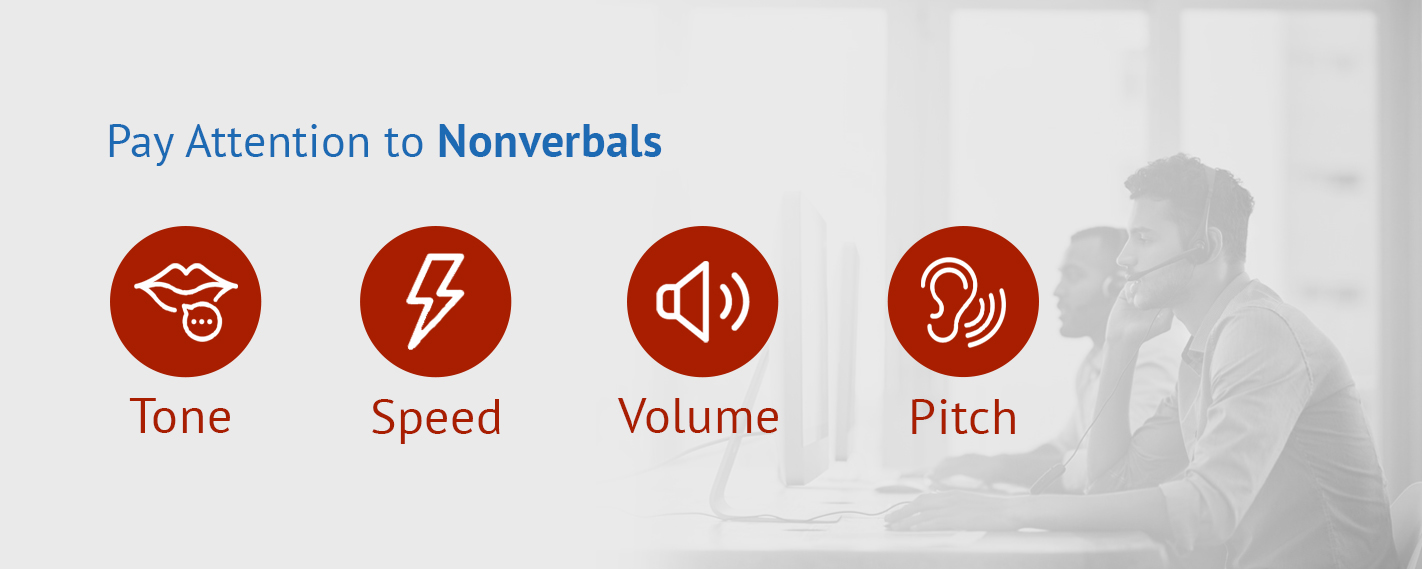Best Cold Calling Tips and Techniques to Boost Sales
Cold calling has long been a staple of many industries. It's a classic sales technique that continues to bring businesses success in generating conversions. But with the booming growth of technology brought on by the 21st century, many companies are losing faith in the cold call process. Some have even gone so far as to proclaim it "dead."
That idea is far from the truth. Sales calls are still an effective way to reach more consumers or businesses and bring in new interest. However, any company that wants to make more successful cold calls on a day-to-day basis needs to modernize and upgrade their practices. Those that do will be more able to keep up with the wants and needs of consumers.
If you're looking to boost your sales, this guide will take you through some of the best cold calling tips so that you can start seeing stronger results from your team.
Selling Over the Phone: What to Know Beforehand
Naturally, if you want to make more sales from your cold calls, you have to be closing by the end of each one, right? Wrong.
Here's the trick — boosting sales isn't always about closing. Sure, it's the last step of the process, but when you're reaching out cold, your focus should be anywhere but the close. Instead, your sales reps should always have the next step for each customer in mind. This mindset change is the first method for success.
When your reps are conducting a call, the aim should be to ensure a second interaction, such as scheduling a follow-up call or in-person meeting or asking the prospect to review a set of materials by a specific time. Regardless of what the next step is, reps need to gain a solid commitment by setting a particular date and time. Establishing relationships is what will help drive sales.
If your sales team members go about their calls as though they're trying to end with a close every time, they're more likely to drive the consumer away. Prospects will perceive a sales pitch in the first call as pushy and feel as though your reps aren't looking out for their best interests. Alternately, if your reps express that they want to see if your solution would be a good fit, they can gain the customer's trust and respect.
Cold calls are best used as tools for further engagement. While considering them as such is one of the best techniques you can use, there are multiple effective cold calling techniques to increase sales.
8 Selling Over the Phone Tips
There's no one correct way to improve your sales team's cold call practices. Instead, your company can use multiple methods to secure more customer commitments and land more sales. If you want reps to take their technique to the next level, remember that the following tips will help them succeed before, during and after calls.
1. Research Leads
Preparing before making any call is essential to success. Without proper research and notes at the ready, your agents will be forced to wing calls, make assumptions and potentially get details about the prospect's company wrong. A customer can tell when the sales rep is underprepared, and it reflects poorly on your business.
Before even touching the phone, your agents should know everything of relevant and timely importance about their point of contact, including their name, how to pronounce it correctly, the company name, the prospect's position within the company and details about what they do. All this data should be in the caller's introduction alone.
Thorough research will also help your agents ask better questions. If customers have to entertain questions that could have quickly been answered in a five-minute Google search, they'll know the representative doesn't particularly care about their company's needs. But if a caller is well-prepared, the prospect will be able to see that your agents are motivated to help them.
2. Write a Thorough Script (and Use It Correctly)
Every cold caller should have a script to reference, and it should be entirely written out well before they go for the phone. However, scripts can also be dangerous, as reps will be tempted to read them as they are. If these callers are too set on sticking to what's written, they'll be less likely to listen to the customer and might miss a few golden opportunities.
Formatting the script as a general outline is the best way to go. Your scripts should include an introduction, acknowledgment of the prospect's needs, discussion questions to guide the direction of the cold call and the end goal. Use thorough research to personalize the introductory part and form questions that are relevant to the customer's position and company.
While having an outline is helpful, sticking to it may not always be the best idea. Listening to the customer is one of the best things your agents can do. If the individual receiving the call asks a question or poses a concern, ditch the script for the moment and answer them genuinely. The customer knows what they need, so let them redirect, but be sure you stay on the path to your end goal.
3. Pay Attention to Nonverbals
From the moment you speak the first word of your introduction, the customer will start making judgments about you, even subconsciously. Every detail about the way your reps deliver their sentences will sway the prospect either toward or against committing to a second interaction. Your team should consistently pay close attention to controlling tone, speed, volume and pitch:
- Tone: When agents are on a call, their tone should be casual and confident. Informality will help draw the customer into a discussion rather than them feeling alienated or like they're speaking to a robot. However, it still needs to remain professional. Ultimately, your reps should be initiating a conversation and acting as though they're speaking peer-to-peer.
- Speed: Most people who are using a pre-scripted outline and have practiced it are prone to rushing through it — especially if they have a lot to say in a short time. Even though your reps know what they're saying, talking too fast can have the prospect struggling to keep up. Staying calm and collected and paying attention to the speed of your sentences is crucial to the client's ability to understand.
- Volume: It's a relatively common rule that if you speak too softly over the phone, the person on the other line will struggle to hear you. It will also make you sound unconfident, or you'll end up having less control over the direction of the call. When you speak up, you'll sound more assertive and ensure that the customer can hear every word you're saying.
- Pitch: While it may be a little less visible to you, your pitch can change the entire mood of the conversation and the customer's perception. If your voice is too high, you may come off unnaturally bubbly, which can be a little much in the morning. A low-pitched voice may sound cranky or dispassionate.
Remember, the prospect doesn't have facial expressions to reference, so your voice dictates the mood. Paying close attention to how you speak can make a big difference in whether or not a client is willing to set up a second conversation.
4. Keep It About the Client
One of the worst mistakes an agent can make within the first few seconds of a call is using "I" too often. A self-centered introduction alone can be enough to turn a potential client away. When you're writing scripts and speaking candidly, the focus should always remain on the customer and providing a solution that's best for their needs.
Try to consistently use language that centers around the words "you" or "we" and shows the prospect that you're looking out for their best interests. It can also help to get the customer talking about themselves. Studies have shown that self-disclosure activates regions of the brain closely associated with pleasure, motivation and reward, so keeping your client talking will help you win them over psychologically.
5. Don't Sell
Believe it or not, one of the best ways to improve your sales is by not selling. The aim of a cold call should never be to deliver a pitch or end with a close. It may sound counterintuitive, but it's one of the best cold calling tips.
Rather than trying to rush a customer into a decision in the span of a few minutes, your agents should focus on a smaller but more important goal — commitment to a second conversation. If your callers can get prospects to agree to and schedule an extra call, a meeting or the review of an offer, you'll have far more sales successes in the long run.
Cold calls should be about building the beginnings of relationships more than anything. At this stage, the most crucial goal is earning trust and showing the customer that you're worth their time. Once you've done that, it'll be much easier to land a sale.
6. Follow Up
One call is nowhere near enough to hook a customer, but surprisingly, most agents will give up after one failed attempt at reaching a contact. They assume it means the customer isn't interested or never will be — which is faulty thinking. About 80% of sales from new clients occur after at least five contacts, so don't be afraid to try more than once or twice.
Many companies are worried about being too pushy, but there's a difference between pressuring a customer into a purchase and being persistent. The difference is tone — rather than calling several days in a row asking if the customer is ready to strike up a deal, your agents should ask if the customer has any questions or concerns they can address, or if they want to discuss further.
7. Foster an Online Presence
Once you've cold called a prospect and piqued their interest, their next step is likely to be looking your company up online. If your online presence is lacking, it might reverse all the hard work you did over the phone. But if you have a well-designed website and active social media accounts with pleasant customer interactions, they may be calling you back before your next appointment.
Make sure you're consistently keeping any social media profiles — including LinkedIn, Twitter, Instagram and Facebook — up to date with the correct information. Customers will notice if anything seems off or is different between the pages, which will hurt your reputation as a professional business. Be sure to keep your branding and tone cohesive across each site.
8. Start With the Right Leads
You won't have much success if you don't start on the right foot. Having quality leads to work with will make your agents' jobs much easier and less stressful. If you can get your hands on lists of leads that fit your target demographic or industry rather than weeding through mixed results, it will cut out a lot of time and effort spent away from the phone.
How to Make a Sales Call: Your Most Valuable Asset
Your sales representatives are the most crucial part of the equation. They help make the connection between your company and potential customers. Anyone can search the internet for a business solution, but it takes hard work and a ton of practice to initiate a conversation and turn it into a conversion.
Make sure your agents have everything they need to make successful calls without being overstressed. You can help them perform more confidently by:
- Offering training: Typically, new employees in any industry go through anywhere from a week to a month of training. After that period, they may never have any subsequent sessions to keep them up to date. Cold calling techniques will shift with the evolution of technology and changes in communication, so continual training is a must. It'll help your agents be more productive and self-confident.
- Rewarding excellent work: You need to let your sales reps know when they're making mistakes, but it's just as important to tell them when they're doing great work. Whether you recognize individuals or the team as a whole, setting up an acknowledgment and reward system will motivate your agents to perform to their best abilities.
- Fostering a positive work environment: If the office your team works in is uncomfortable or seems to make them restless, it's time for a change. Bring in some color and live plants to brighten up the room. Provide plenty of water coolers, and leave space for a separate breakroom. The less stressed your agents are, the better their attitudes will be.
- Providing software and hardware: Working with outdated or slow tech can be just as frustrating as trying to talk to an irritable client. There's no reason to be struggling, especially when there are companies that offer affordable telemarketing solutions. Integrating dialers and VoIP services into your current practices will help your team reach leads more efficiently without wasting time.
- Supplying quality leads: If your agents start with leads from the wrong demographics, they'll end up spending more time trying to find qualified customers than starting conversations with potential. Buying targeted leads from a reliable company will cut that time down exponentially and set your team up for winning opportunities.
There are plenty of cold calling methods to consider if you're looking to improve sales. All of them require diligent practice and a little patience, but once your agents get used to the processes, they'll feel comfortable and confident in their abilities. As long as you support them, they'll be ready to sell — even if they're not really selling during cold calls.
With TelephoneLists.Biz, a branch of EVS7, your company will have access to everything your agents need for a smoother cold call session. We offer business and residential lists organized by country, state, zip code and several other consumer demographics.
Our easy-to-use web portal will allow you to purchase data in bulk at any time, so you can get reliable leads for your team at an excellent value. We'll send your lists in CSV by email, and they'll be compatible with dialer systems, allowing you to get right to calling.
Start your agents with the right leads — shop our telemarketing lists by region or contact us for more information.




